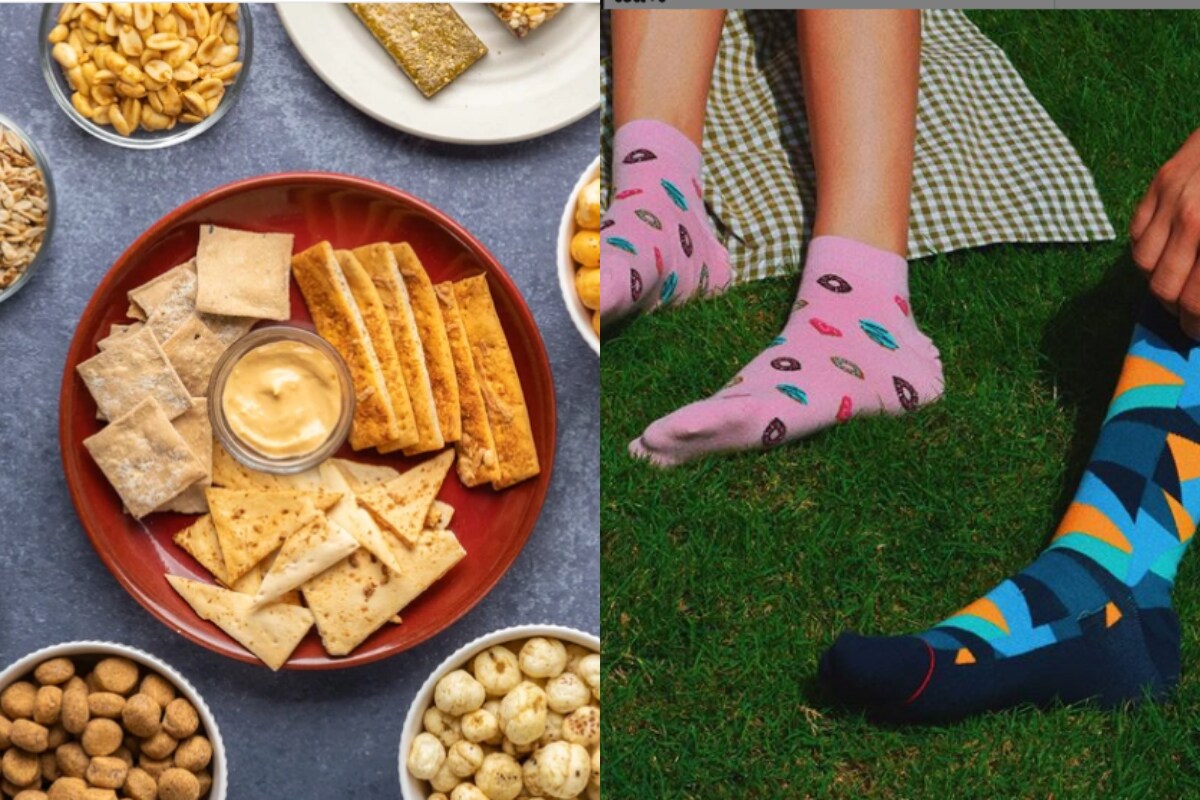Late-night Snacking Might Seem Fun, But Here’s Why it’s Extremely Harmful
Innumerable studies in the last decade have pointed out the two broader, harmful effects that lead to multiple but not smaller in any sense side effects of late-night snacking.

Image Credits: Snackible/Soxytoes.
Whether you’re a student, a shift worker or just a regular foodie, you must have felt the urge to check your refrigerator or pantry after midnight to check if there’s anything to nibble on. Lifestyle choices and certain work cultures have made late-night snacking a habit that most people you know are guilty of. And the guilt associated with this habit isn’t unreasonable since as far as healthy practices are concerned, it’s not the best one.
The extreme fallouts of that late-night snack
Innumerable studies in the last decade have pointed out the two broader, harmful effects that lead to multiple - but not smaller in any sense - side effects of late-night snacking.
1. Circadian misalignment: The circadian rhythm is the basic body clock based on your sleep-wake cycle. There are designated times in this cycle when eating is recommended for optimum nutrition and good health, and it’s certainly not late at night or right before you go to bed. A study in the World Journal of Diabetes in 2018 is one of the many studies that link the disruption of circadian rhythm by late-night snacking with reduced sleep quality, sleep duration and the occurrence of cardiometabolic diseases like heart disease, diabetes and obesity.
2. Metabolic syndrome: According to a study in BMC Public Health in 2018, late-night eating is one of the biggest causes of metabolic syndrome and obesity. Metabolic syndrome, as per the American Heart Association, refers to a cluster of metabolic disorders which occur together and increase future risks of cardiovascular diseases. This cluster includes high blood pressure or hypertension, high blood sugar or diabetes, excess body fat around the waist and abdomen, and abnormal cholesterol levels - none of which are issues that should be taken lightly.
How to stop late-night snacking
Eating late at night is a habit you should break out of if you want to live a healthy life. But, like any habit, this one might be a little difficult to quit. Try the following tips, and you’re likely to find it easier to stop snacking in the middle of the night.
- Know your triggers and the cause behind your late-night snacking habits. Is it because you skipped a meal, had too light a dinner, or is it because you’re craving something or have a binge-eating disorder? Knowing the cause behind your eating habits is important to know how to deal with it.
- The best way to deal with late-night snacking is to make a meal routine and stick to it. You’re probably eating later at night because you’re not eating enough throughout the day, so remedy the cause and your habit will subside.
- Don’t just plan your meals, but also make sure that you have sufficient proteins, fibre and carbs in it. These are the nutrient groups that keep you feeling full for longer. Eat them in the right proportion for dinner and you won’t feel like eating something past midnight.
- Avoid stocking snacks, processed foods and other types of sugar- or salt-loaded junk foods which you can take out and binge on within a moment’s notice. This is especially important for those who have a binge-eating habit.
- If kicking this late-night snacking habit is turning out to be more difficult then it’s best to seek out help from an expert. You could talk to a nutritionist about your meal plan, a doctor about how your diet is affecting your overall wellbeing, and a mental health professional if you find it’s a behavioural habit. These experts will be able to guide you through the change so that your health is maintained.
For more information, read our article on Healthy recipes.
Health articles on News18 are written by myUpchar.com, India’s first and biggest resource for verified medical information. At myUpchar, researchers and journalists work with doctors to bring you information on all things health.
The information provided here is intended to provide free education about certain medical conditions and certain possible treatment. It is not a substitute for examination, diagnosis, treatment, and medical care provided by a licensed and qualified health professional. If you believe you, your child or someone you know suffers from the conditions described herein, please see your health care provider immediately. Do not attempt to treat yourself, your child, or anyone else without proper medical supervision. You acknowledge and agree that neither myUpchar nor News18 is liable for any loss or damage which may be incurred by you as a result of the information provided here, or as a result of any reliance placed by you on the completeness, accuracy or existence of any information provided herein.